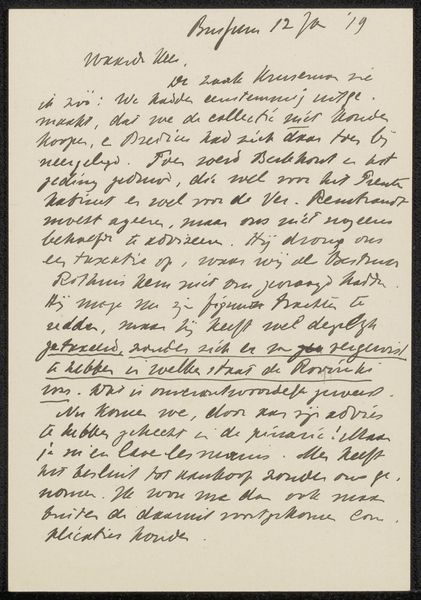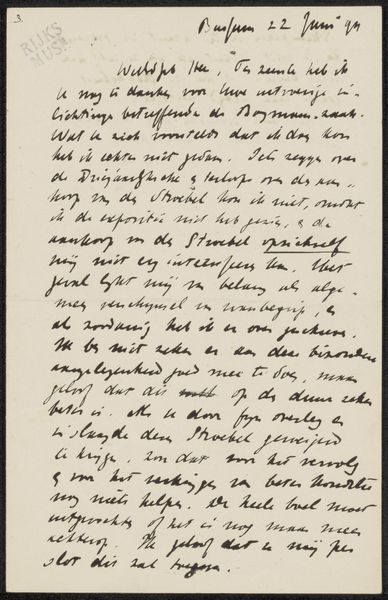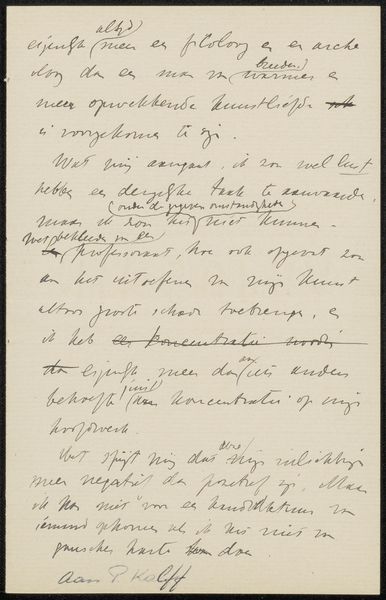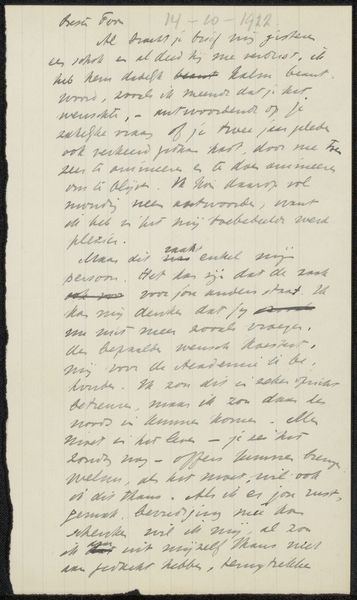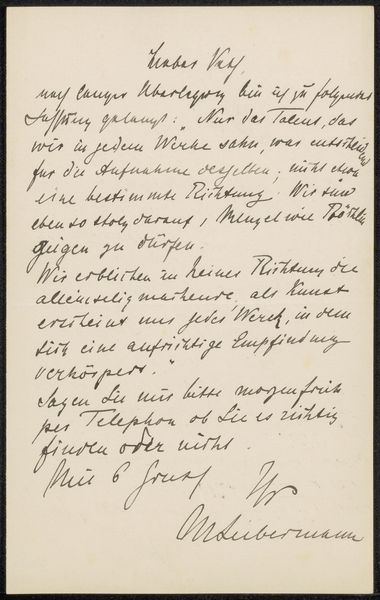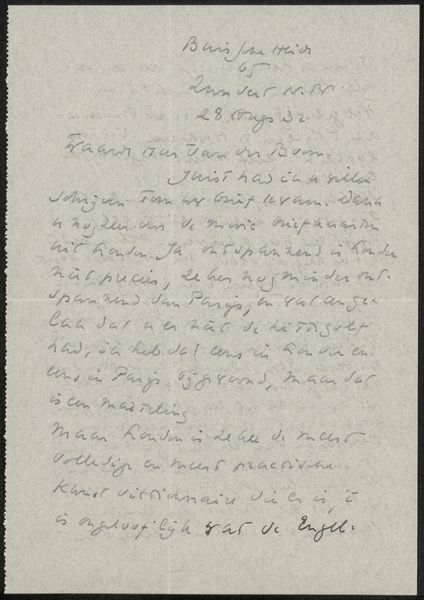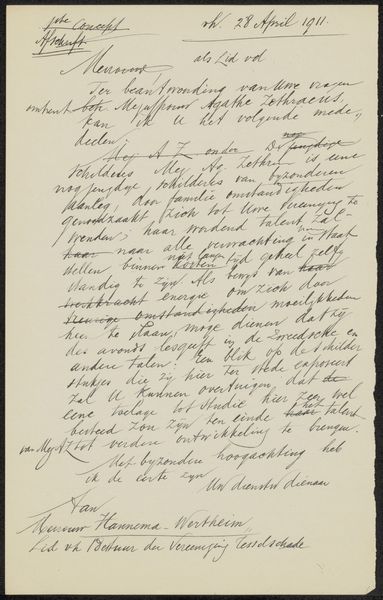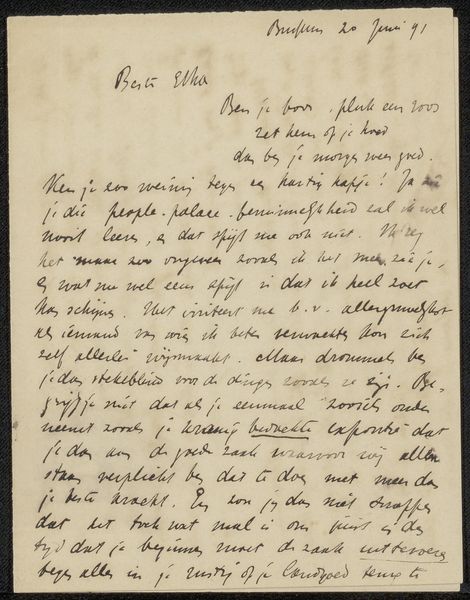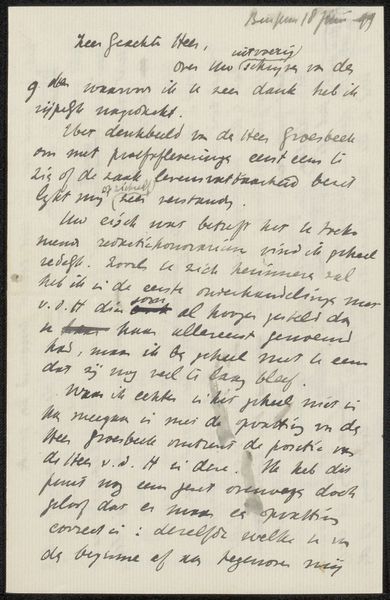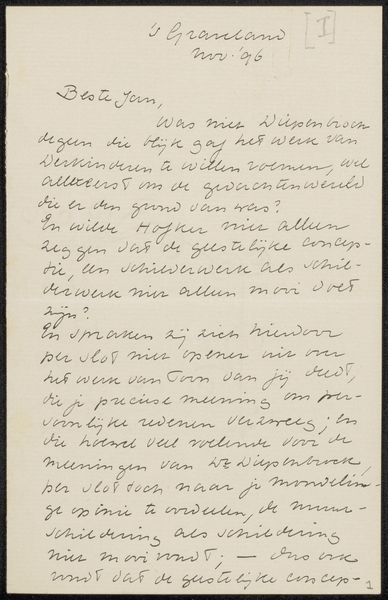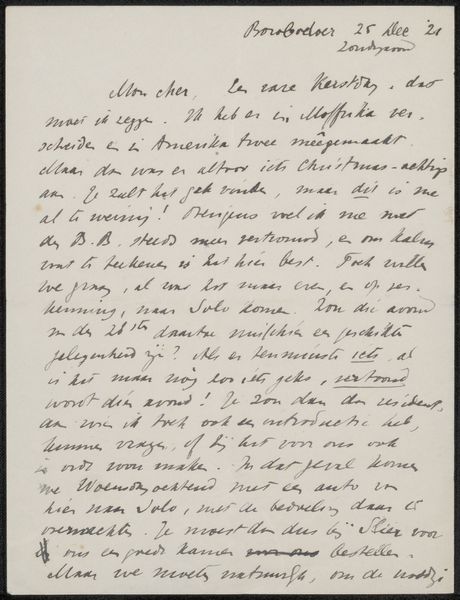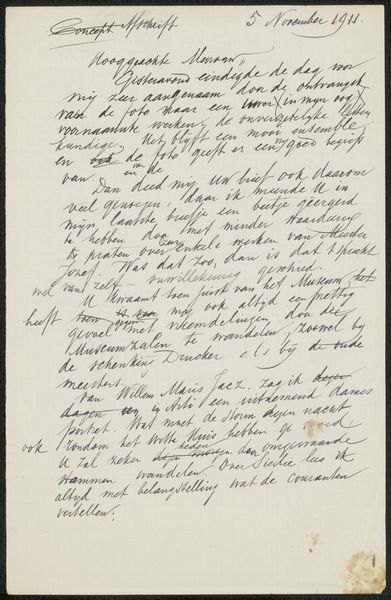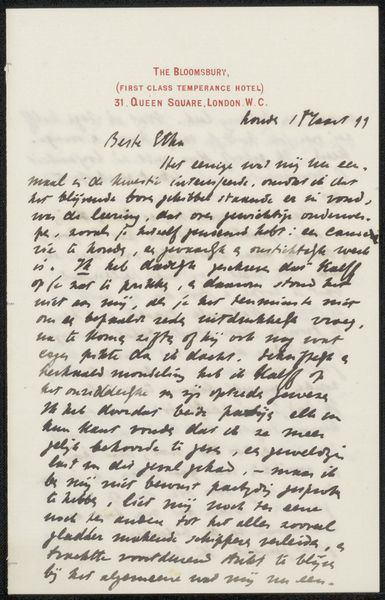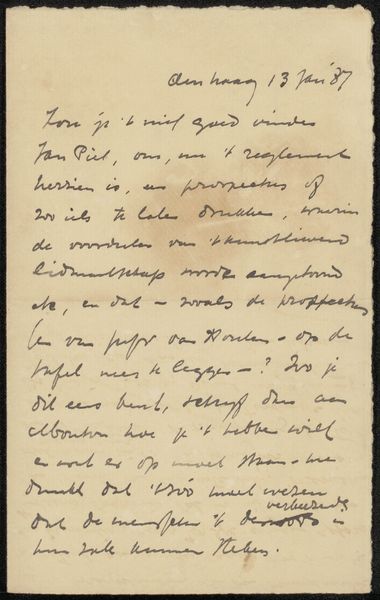
drawing, paper, ink, pen
#
drawing
#
paper
#
ink
#
hand-drawn typeface
#
pen work
#
pen
#
modernism
#
calligraphy
Copyright: Rijks Museum: Open Domain
Curator: We’re looking at “Brief aan Isaac Israels,” a letter, possibly from 1925, penned by Jan Veth. It’s part of the Rijksmuseum collection. Editor: The sheer amount of hand-written text is immediately striking. It has such a personal, almost intimate quality, doesn't it? The controlled penmanship evokes a strong sense of… discipline? Curator: Indeed. Veth employs pen and ink on paper. What may seem like a simple, everyday action, the physical act of writing, takes on significant meaning here. Consider the era, the role of handwritten correspondence. This isn't just information transfer, it's an act of considered communication. Each stroke bears the mark of Veth's intention. Look closely, and you can even see flourishes that approach calligraphy, bending the functional to artistic means. Editor: From my perspective, the *medium* is critical. Pen, ink, and paper-- humble materials, but the labor-intensive process elevates it. There’s a clear defiance of industrial production in its emphasis on handcrafted artistry. I also find that looping grey section that lies separated to the left of the letter extremely curious - what would the purpose of that even be? Curator: The text reflects Veth's mindset. The letter discusses Dutch interest in the "primitive sources of Palae-ponies or Alaska" and states that such sources must be included in our most inherent cultural product, an almost imperial gaze being applied. And that section? That looks almost like he was testing or cleaning his pen. Editor: Right, the societal dimensions of artmaking! Seeing how even seemingly mundane items were a key component is just endlessly interesting to me. This close study of something quotidian definitely illuminates the art of life itself. Curator: It encourages us to recognize how embedded our cultural biases can be. Veth, while seemingly an intellectual, could not escape that era’s thinking, as evidenced by what he puts down on this paper, now permanently visible nearly 100 years later. Editor: And I, for one, am grateful for the opportunity to look at them today, and reconsider what they mean.
Comments
No comments
Be the first to comment and join the conversation on the ultimate creative platform.
